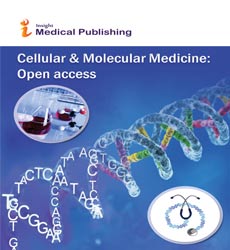Abstract
Natriuretic Peptides, Heart, Cancer and the Cardio-Oncology
Now-a-days, the heart is considered an endocrine organ of great importance, producing several vasoactive peptides with natriuresis, vasodilation, antiinflammatory, and anti-cardiac remodeling actions. In the setting of heart failure, a resistance or decrease in the action of the natriuretic peptides occurs, whereas inhibitors of its catabolism have shown a decrease in hospitalization and mortality. Current chemotherapy treatments can decrease or eliminate many of the human cancers, but at the expense of cardiovascular toxicity, which can appear during or after the treatment has completed. From the interrelation between treatment of cancer and the cardiovascular toxicity has emerged the discipline called cardiooncology. Although the standard test for the diagnosis of cardiac dysfunction is echocardiography, gaps in the diagnosis and surveillance persist, with more investigation being needed. Besides, there are evidences, both in animal experiments and in humans, of the utility of natriuretic peptides in the diagnosis and in treatment of various cancers.
Author(s):
José Luis Alonso-Martinez and Francisco Javier Annicherico-Sánchez
Abstract | Full-Text | PDF
Share this

Google scholar citation report
Citations : 187
Cellular & Molecular Medicine: Open access received 187 citations as per google scholar report
Abstracted/Indexed in
- Google Scholar
- China National Knowledge Infrastructure (CNKI)
- Cosmos IF
- Geneva Foundation for Medical Education and Research
- Secret Search Engine Labs
Open Access Journals
- Aquaculture & Veterinary Science
- Chemistry & Chemical Sciences
- Clinical Sciences
- Engineering
- General Science
- Genetics & Molecular Biology
- Health Care & Nursing
- Immunology & Microbiology
- Materials Science
- Mathematics & Physics
- Medical Sciences
- Neurology & Psychiatry
- Oncology & Cancer Science
- Pharmaceutical Sciences

